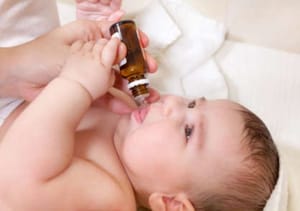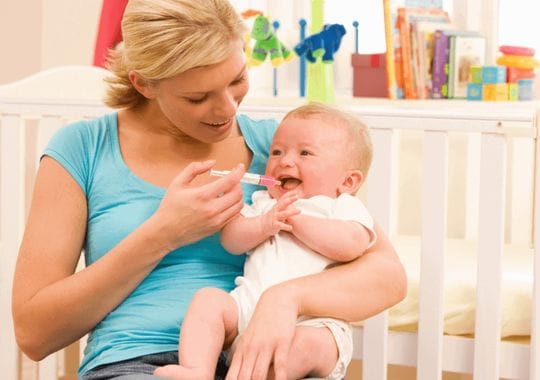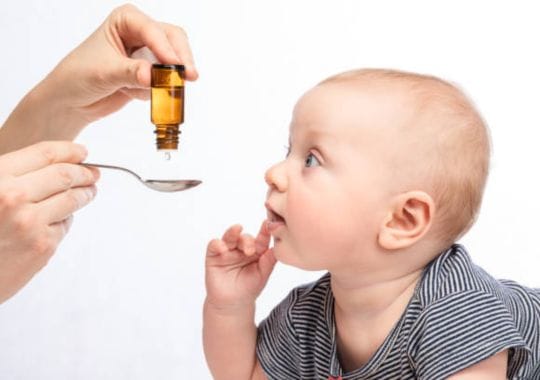Hey there, parents and caregivers! If you've got a little bundle of joy on your hands, you're probably wondering about their nutritional needs, especially when it comes to that elusive vitamin D. We get it, there's so much to think about when taking care of a baby. But don't worry, we've got you covered in this comprehensive guide on "How much vitamin D should a baby take daily?"
As Amazon affiliates we may earn a commission if you purchase a product at no cost to you.

Watch this interesting video.
The Importance of Vitamin D for Babies
Before we get into the nitty-gritty of dosage, let's talk about why vitamin D is such a big deal for your baby:
Strong Bones and Teeth
Vitamin D is like the superhero for your baby's bones and teeth. It helps their little body absorb calcium, which is vital for bone growth. Without enough vitamin D, their bones might not develop properly, which could lead to health issues down the road.
A Healthy Immune System
Nobody likes a sniffling baby, right? Well, vitamin D can help keep those pesky colds at bay. It's known for boosting the immune system, helping your baby fight off infections and illnesses.
Mood Regulation
Believe it or not, vitamin D drops also plays a role in your baby's mood. It can help keep those grumpy days to a minimum. So, if you want a happy, smiling baby, you better make sure they're getting enough of the sunshine vitamin!
Now that you know why vitamin D is essential let's talk numbers.

How Much Vitamin D Does a Baby Need?
Alright, here's the million-dollar question: "How much vitamin D should a baby take daily?" Well, the answer isn't one-size-fits-all, but we'll break it down for you based on age and recommendations:
For Infants 0-12 Months
Babies in this age group need about 400-1000 IU (International Units) of vitamin D every day. The exact amount can vary depending on factors like where you live, how much sunlight your baby gets, and whether they're breastfed or formula-fed.
Breastfed Babies: If your baby is exclusively breastfed, they might not be getting enough vitamin D from breast milk alone. In this case, it's usually recommended to supplement with vitamin D drops. Your pediatrician can guide you on the correct dosage.
- Formula-Fed Babies: If your baby is formula-fed, they might be getting enough vitamin D from their formula, but it's always good to double-check with your pediatrician.
- Sunlight Exposure: Some babies might get enough vitamin D from sunlight exposure, but you need to be cautious about direct sun exposure for infants. The American Academy of Pediatrics (AAP) recommends keeping your baby out of direct sunlight and using protective clothing and sunscreen when necessary.

Best Sources of Vitamin D for Babies
Now that you know how much vitamin D your baby needs, you might be wondering where to get it from. Here are some common sources:
Sunshine
The sun is a natural source of vitamin D. When your baby's skin is exposed to sunlight, their body can produce vitamin D. However, it's essential to follow safety guidelines:
- Keep sun exposure brief for infants.
- Avoid direct sunlight during peak hours.
- Use protective clothing and hats.
Supplements
Vitamin D supplements, often in the form of drops, are an excellent way to ensure your baby gets the right amount of this essential nutrient. Your pediatrician can recommend a suitable supplement and dosage based on your baby's specific needs.
Formula
If your baby is formula-fed, the formula may already contain vitamin D. Check the label to see if it meets the recommended daily intake.
Diet
Once your baby starts eating solid foods, you can incorporate foods rich in vitamin D into their diet. Some sources of vitamin D include fortified cereals, egg yolks, and fatty fish like salmon. However, keep in mind that diet alone may not provide sufficient vitamin D for infants.
Recommended Article

Frequently Asked Questions FAQs
Can my baby get enough vitamin D from breast milk alone?
Breast milk is a fantastic source of nutrition for your baby, but it may not contain enough vitamin D. To ensure your baby gets the recommended amount, consult your pediatrician about vitamin D supplementation.
Should I be concerned about vitamin D deficiency in my baby?
Vitamin D deficiency can lead to health issues, so it's important to be aware of the risks. Infants who are exclusively breastfed, have limited sun exposure, or have specific medical conditions may be at higher risk. Regular check-ups with your pediatrician can help monitor your baby's vitamin D levels.
Can I give my baby too much vitamin D?
Yes, it's possible to give your baby too much vitamin D, which can be harmful. Always follow your pediatrician's recommendations for dosage. Avoid giving additional vitamin D supplements without professional guidance.
Can I rely on sunlight alone for my baby's vitamin D needs?
While sunlight can be a source of vitamin D, it's essential to do so safely and sparingly, especially for infants. Direct sun exposure can lead to skin damage and overheating. It's best to consult your pediatrician and consider other sources like supplements or fortified foods.
When should I start giving my baby vitamin D supplements?
Typically, vitamin D supplements are recommended shortly after birth, especially for exclusively breastfed babies. However, the timing may vary based on individual circumstances. Consult your pediatrician to determine the best timing and dosage for your baby.
Conclusion
So, there you have it, folks! "How much vitamin D should a baby take daily?" isn't a one-size-fits-all question. It depends on your baby's age, diet, and sun exposure. But the bottom line is that vitamin D is vital for your baby's growth, immune system, and overall well-being. They can provide personalized guidance on the right dosage of vitamin D and ensure that your little one is on the path to a bright and healthy future. Here's to happy, healthy babies!











